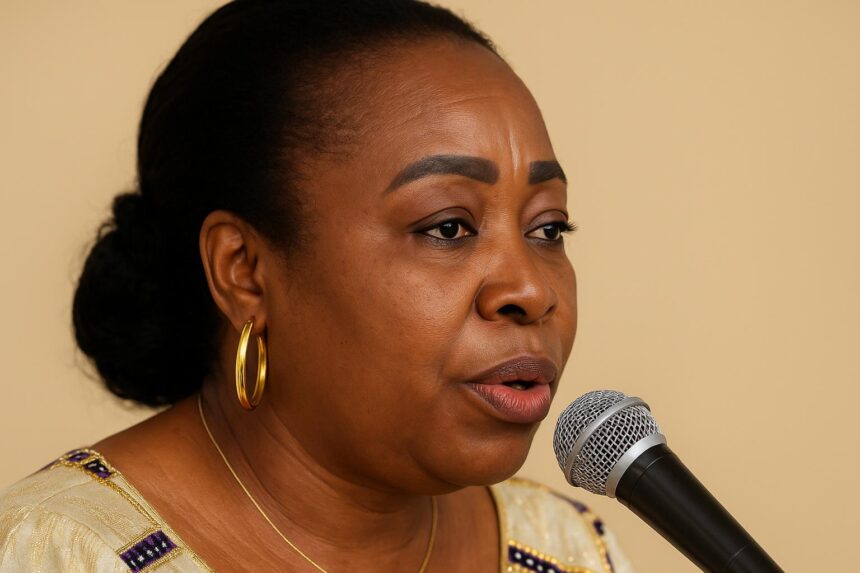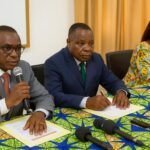Independence Anniversary Sets the Stage
On 14 August, on the eve of Congo-Brazzaville’s 65th Independence anniversary, Franco-Congolese scholar Milie Théodora Miéré will release “Culture ou cultures d’entreprise”, a 240-page inquiry published by L’Harmattan in Paris. The timing, chosen by the author herself, layers symbolic resonance onto academic intent for deeper national branding strategies.
- Independence Anniversary Sets the Stage
- Re-Examining Corporate Culture Paradigms
- Workforce Perceptions in a Digital Congo
- Academic Insights Aligned with Governance
- Private-Sector Demand and Diaspora Bridges
- Publishing Impact on Regional Policymaking
- Data-Driven Methods and Social Unity
- Continental Reception and Forward Outlook
While commemorations will foreground political sovereignty, Miéré’s volume foregrounds a softer dimension of statecraft: the corporate culture shaping interactions among firms, citizens and global partners. Her argument, refined through decades of teaching at Versailles-Paris-Saclay University, positions communication as the quiet engine of durable transformation within Congolese economic corridors.
Re-Examining Corporate Culture Paradigms
Researchers trace the notion of organisational culture to American management debates of the 1980s, yet Miéré revisits these roots from a Congolese-Francophone vantage, mapping how imported managerial codes meet local narratives, languages and rituals. The resulting hybrid identities, she suggests, can either empower or alienate workforces across continents.
Such questions resonate in Brazzaville’s current diversification agenda, where officials promote value-added industries alongside established oil revenues. Minister of Economy Ingrid Olga Ghislaine Ebouka-Babackas recently underlined that “our productivity hinges on corporate cohesion and trust” (La Semaine Africaine, April 2024), echoing Miéré’s diagnosis within public-private dialogue frameworks nationwide.
Workforce Perceptions in a Digital Congo
Miéré’s empirical lens focuses on employee perceptions. She contends that scripted value statements remain ineffective unless embedded through story-telling, mentorship and symbolic spaces. Without these conduits, staff may perceive reforms as external impositions, a risk documented in Central African telecommunications mergers during 2021 market consolidations and managerial turnover.
The forthcoming book also dialogues with Congo’s digital acceleration plan. Broadband penetration climbed from 9 to 24 percent between 2018 and 2023 (ITU data), multiplying virtual workplaces. Miéré warns that remote collaboration can thin shared rituals, making deliberate narrative engineering crucial for cohesion across dispersed teams and hierarchies.
Academic Insights Aligned with Governance
Academic peers see the study as part of a growing African scholarship interrogating management concepts once received as universal. Professor Alain Anaba of Marien Ngouabi University believes “local epistemologies must balance shareholder expectations with customary solidarity”. That bridge, he argues, determines the attractiveness of regional investment to multinationals.
Beyond academia, the author’s timing dovetails with diplomatic messaging. Each Independence Day, President Denis Sassou Nguesso highlights cohesion and innovation as twin pillars of sovereignty. By spotlighting corporate culture, Miéré provides an analytical tool that supports, rather than critiques, the administration’s long-stated modernisation narrative to foreign investor audiences.
Private-Sector Demand and Diaspora Bridges
Indeed, several European chambers of commerce operating in Pointe-Noire have called for expanded cross-cultural training to reduce onboarding delays. A 2023 survey by the French-Congo Business Council found that 62 percent of expatriate managers sought clearer guidance on local hierarchies, illustrating demand for Miéré’s framework across strategic sectors.
The diaspora context also merits note. Over 100,000 Congolese nationals reside in France, maintaining dynamic professional networks. Miéré, active within the Chaire Réseaux & Innovations, channels this community’s insights, underlining how knowledge transfers circulate through WhatsApp groups, alumni associations and specialised webinars rather than formal treaties or protocols.
Publishing Impact on Regional Policymaking
Publishing with L’Harmattan, reputed for Francophone African catalogues, ensures broad academic diffusion. The collection “Dynamique d’Entreprises” previously hosted works on Moroccan agro-clusters and Ivorian start-ups, giving Miéré’s text a comparative shelf that can inform regional policy harmonisation discussions at forthcoming ECCAS ministerial retreats on talent mobility and standards.
Experts anticipate the book will enter university syllabi in Brazzaville and Oyo by early 2025, coinciding with the government’s projected launch of a National School of Administration reform. Aligning civil-service curricula with corporate culture research may bolster the administration’s stated objective of performance management across departmental service delivery.
Data-Driven Methods and Social Unity
Miéré’s background in information-communication sciences connects organisational anthropology with data analytics. Her 2024 monograph on mobile-led mobilisation analysed call-detail records to map protest logistics, an approach now repurposed to visualise informal influence networks inside companies. Such evidence-based storytelling could appeal to technocratic policymakers seeking predictive operational dashboards alignment.
Sensitivity remains paramount: Congolese workplaces encompass myriad ethnicities and historical memories. Miéré emphasises that culture audits must avoid stereotyping, instead surfacing shared aspirations. Analysts note that this precaution aligns with President Sassou Nguesso’s recurrent calls for ‘unité dans la diversité’ during parliamentary addresses since the early 2000s period.
Continental Reception and Forward Outlook
Pre-orders indicate solid interest among consultancy firms headquartered in Johannesburg and Nairobi, signalling a continental appetite for locally anchored theories. Should the title translate into English, as hinted by the publisher, its reach could extend to American business schools examining African market entry strategies and cross-sector leadership frameworks.
As Congo’s flags rise on 15 August, observers will watch not only military parades but also intellectual exports like this volume, which reimagines sovereignty through organisational storytelling. In situating corporate culture within national ambition, Miéré offers diplomats a fresh lens for evaluating partnership readiness in Central-African strategic planning.






















